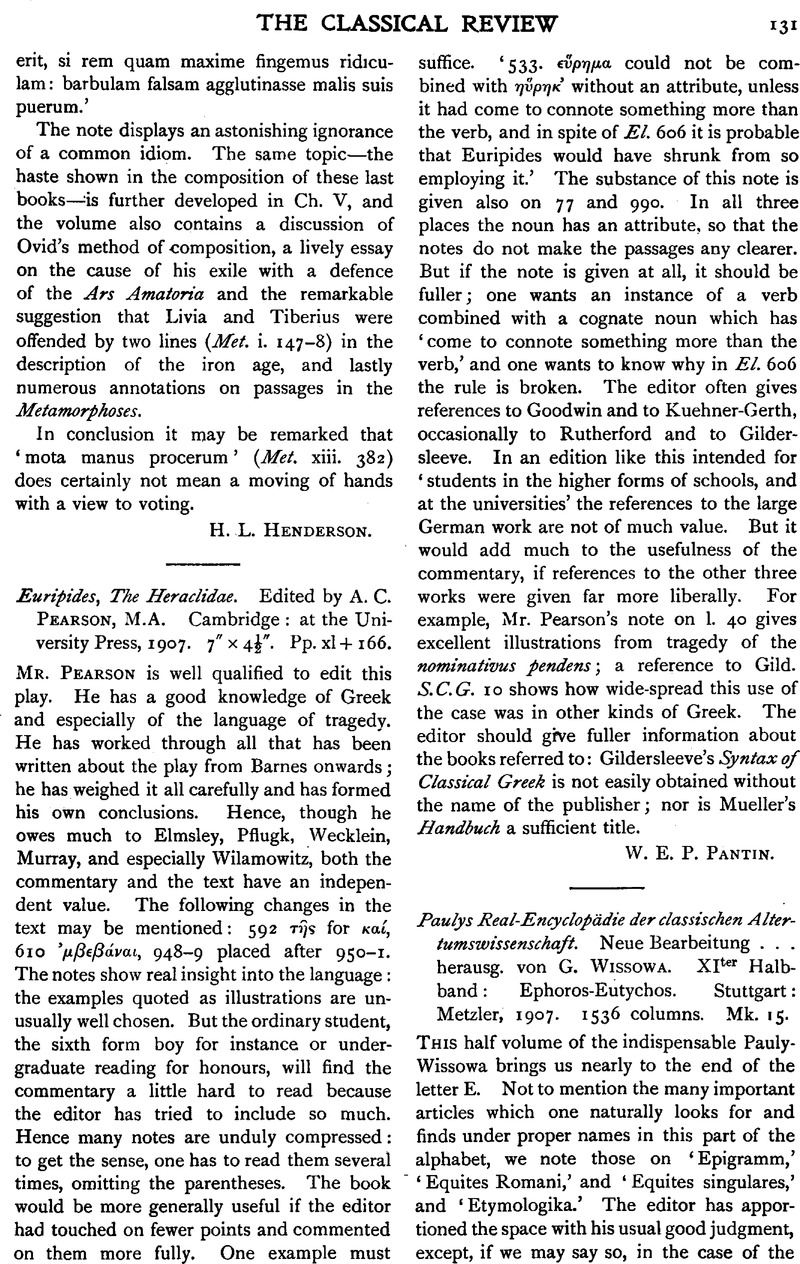No CrossRef data available.
Article contents
Paulys Real-Encyclopädie der classischen Altertumswissenschaft. Neue Bearbeitung … herausg. von G. Wissowa. XIter Halbband: Ephoros-Eutychos. Stuttgart: Metzler, 1907. 1536 columns. Mk. 15.
Review products
Published online by Cambridge University Press: 27 October 2009
Abstract

- Type
- Short Notices
- Information
- Copyright
- Copyright © The Classical Association 1908
References
1 Epimeletes: this title is also found at Mastaura. On it, and on the verbal form ⋯πιμεληθε⋯ς, see H. von Fritze in Nomisma i. p. 2 f. Epiphanes: the religious significance of this regal title might have procured it more than the five words in which it is dismissed. King Epiphanes of Commagene (72 A.D.) is omitted. Epiphora: in the sense of an extraordinary contribution (I.G. i. 37) this word requires explanation. So does Epinikia, in the sense of an agonistic festival (as on the coins of Tarsus and Anazarbus). Episemon (shield-device) is quite inadequately dealt with. See especially Chase's article on the subject in Harvard Studies, xiii. Eppillus: son of Commius, king of the Kentish district, is omitted. Erchomenos: the epigraphic form of the city-name Orchomenos, was worth a cross reference. Ergetium: the numismatic question of Ergetium-Sergentium (raised long ago by de Luynes) should have been touched upon, although the recent discussions by de Foville (Rev. Num. 1907), and Pais (in his ‘Ancient Italy’) were not available. Prof. Pais' book should also be consulted on Eryx and Euthymos. Erion: the Thelpusian name for the horse Arion, requires an entry: so does the title Ethnarchos. The most serious omission we have noticed is in the case of Euelthon, the well-known king of Salamis. Other less famous Cypriote rulers, known only from their coins, such as Epipalos of Amathus (?), Eteandros of Paphos, and Euanthes of Salamis, have also escaped. Finally, Eurea, a Thessalian city which issued some pretty coins; the nymph Eurymedusa of Selinus, and Eupator, king of Bosporos about 155–171 A.D., find no mention.


